Get Rid of Acne With These Carrier Oils
If you're looking for a natural way to clear up your acne, look no further than these best carrier oils.

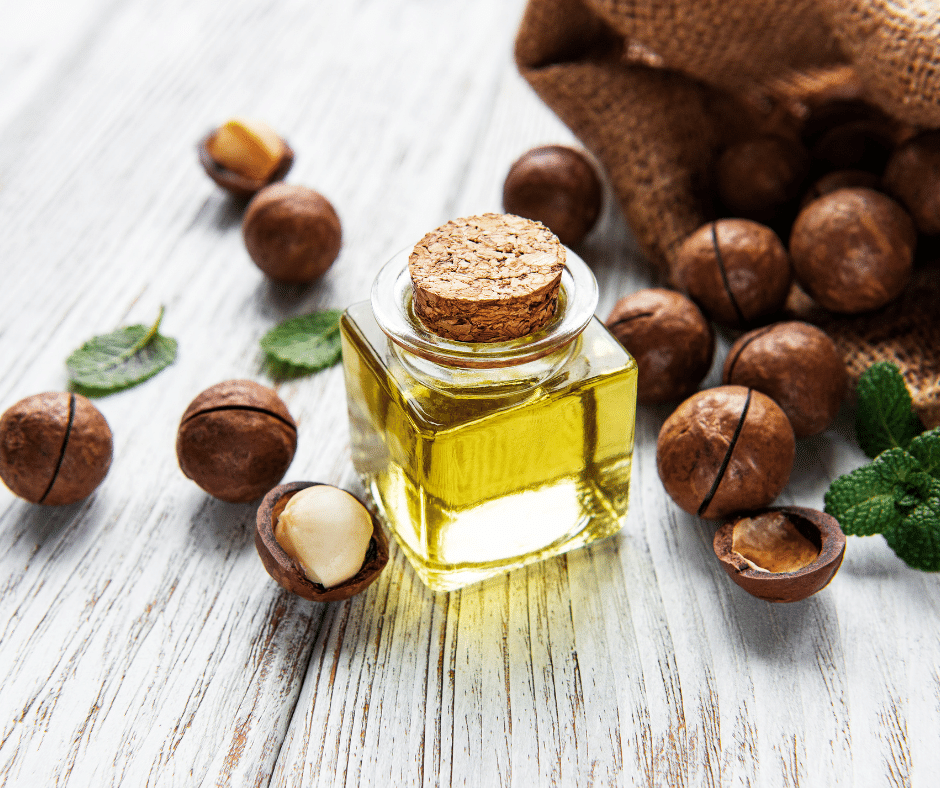
Do you like natural skin care products and have acne? You might be using the wrong carrier oils if you have acne-prone skin. Follow along to find out which carrier oils are best for your acne-prone and oily skin.
Best Carrier Oil for Acne Prone Skin
While it may seem counterintuitive to put oil on acne-prone skin or those with oily skin, the research suggests it could be very beneficial, especially for certain skin types. Many double cleansing routines work by using an oil-based cleanser as the first in the cleansing routine. This can help to break up dead skin cells, get a deeper clean into the pores, remove pollutants and dirt, and may reduce the inflammatory response depending on which oil is used. Some oils can trigger or worsen breakouts. The good news is, there are plenty of carrier oils that can benefit acne-prone skin. Check out the list below to find the best carrier oil for your acne-prone skin type!
Oily Skin
While many of the facial oils we included will benefit oil skin our focus today was on providing information for acne-prone skin types. Many essential oils can also work well with an overall acne treatment when added to several of these carrier oils. The best carrier oils for you will be dependent on whether you have irritated skin, clogged pores, or an impaired skin surface. Keep reading to find out which carrier oils hit the mark.
This article contains affiliate links from Amazon and we are participating Amazon Associates and Aromatics International. We may be compensated a small commission for providing you recommended products today. There is no additional cost to you. This small earned fee helps us continue to help people with their skin problems. WE only promote products we believe in.
Coconut oil
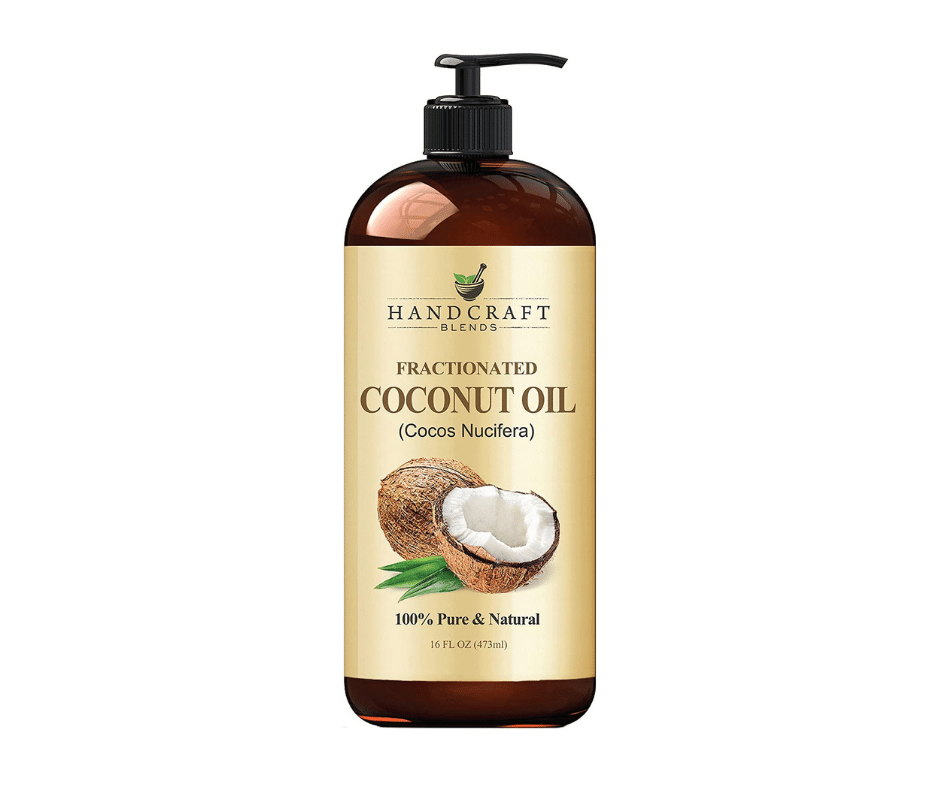
Handcraft Blends-Fractionated Coconut Oil. 100% Pure and fractionated so it is not as heavy as a virgin coconut oil. It is Fragrance Free, Hexane Free, Preservative Free, Chemical Free, and 100% Vegan. This product could also be used for dry scalps, animals with dry skin and for those with dry or crepey skin conditions. This oil is great for use right out of the shower and is fairly inexpensive.
Visit Handcraft Store for more product selections.
Pros: This oil has antibacterial and anti-inflammatory properties. Coconut oil can help to soothe the skin and reduce redness and swelling. This makes it great for those with inflammatory conditions. The problem is that it's comedogenic. This means that it can block pores. It's highly moisturizing making it a great option for skin types like dry skin and problem skin like eczema, dermatitis and rosacea as well as sensitive skin.
Cons: The problem with this carrier oil is that it is highly comedogenic which means it can clog pores and make some types of acne even worse. Coconut oil does better for non-acne-prone skin types. While it does have antibacterial and anti-inflammatory properties it's not a good pick if you have oily skin. Coconut oil does well with dry skin types and those who are prone to sensitive inflamed skin not necessarily acne-prone or oily skin types.
Jojoba oil
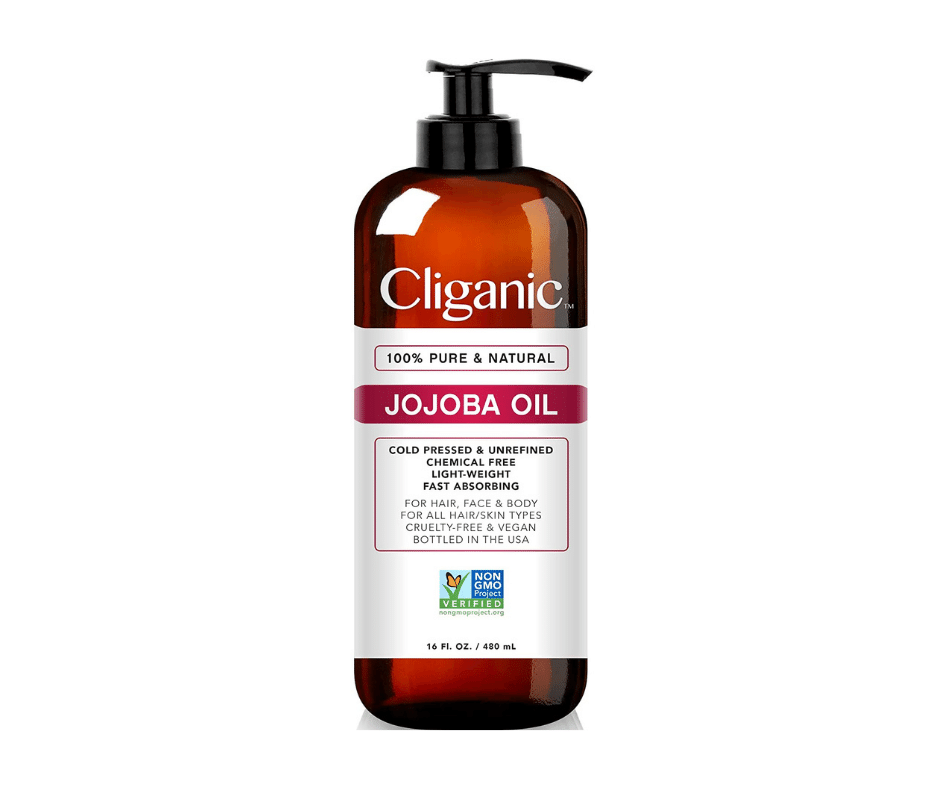
Cliganic has a solid reputation for non Gmo and organic products. This jojoba oil is cold pressed and has no refinements that can break down the health benefits of the oils. They are cruelty free, hexane free and vegan friendly. They are located in the U.S.
This Jojoba Oil is lightweight and non-comedogenic. It absorbs easily without causing more problems to the pores. This product can be used on the skin, hair and even beard for added moisture. It's also safe for sensitive skin types.
Visit the Cliganic Store for more product selections.
Pros: Jojoba oil is non-comedogenic, which means it won’t clog pores. Jojoba oil can also help to balance sebum production and heal damaged skin. This makes it a better option for those with acne-prone skin to oily skin types.
Cons: While jojoba oil is non-comedogenic it does not contain some of the anti-inflammatory properties as other oils do. This alone may not be a good fit for certain types of acne especially those that are inflammatory. Other oil options are not as oily or wax-like for acne skin types.
Essential Oils
Tea Tree oil
Tea Tree oil is often used in skincare formulations due to it's ability to help purify and cleanse the skin. It is often added for acne treatments or steam services to promote healing to acne skin types. It has an ability to kill bacteria making it really beneficial if you have bacterial acne. Just remember to use this with a carrier oil starting at around 1-3% essential oil to the carrier oil. Remember these are therapeutic grade essential oils and are highly concentrated. You can also use Tea Tree oil in your diffuser to cleanse the air or use it as a natural cleaning ingredient to clean your house. It's really multipurpose. Again this is very clean smelling and does a great job in clearing smelly, stale air indoors.
This company has a strong commitment to sustainably sourced products from around the world. They take great strides to offer the most potent ingredients from artisan crafted suppliers that also practice sustainable, earth friendly practices and promote partnerships with areas that encourage fair trade and support local economic practices. These are some of the reasons that I personally use this brand and have used their products for years. Their essential oils are the cleanest I have ever used. I use them in my spa and my clients also love them. They smell amazing and their carrier oils are pure without harsh chemicals which is very important to me personally as someone with massive skin irritations, allergies, asthma and eczema. They also have amazing customer service!
Pros: Tea tree oil has antibacterial, antimicrobial, and anti-inflammatory properties. Tea tree oil can help to kill acne-causing bacteria and it can also help to reduce redness and swelling. Often used in natural cleaning formulas.
Cons: Tea Tree Oil is not a traditional oil purse. It is an essential oil. Some essential oils can make certain acne types worse. It's important to use essential oils without any synthetics added such as fragrances, dyes, and colors for the best efficacy. These additives can trigger skin reactions, irritations, and rashes in addition to other skin problems.
Visit Aromatics International for more product options.
For this reason, you have to pay attention to the sourcing of essential oil. Clean, organic, artisan crafted with labeling that shows where the oil is harvested as well as the chemical makeup (GCMS) of the oil as illustrated in Tea Tree oil has been used for many acne-prone skin types. It is also great for purifying the air and is used in natural cleaning ingredients due to its germicidal characteristics.
Rosehip Seed Oil
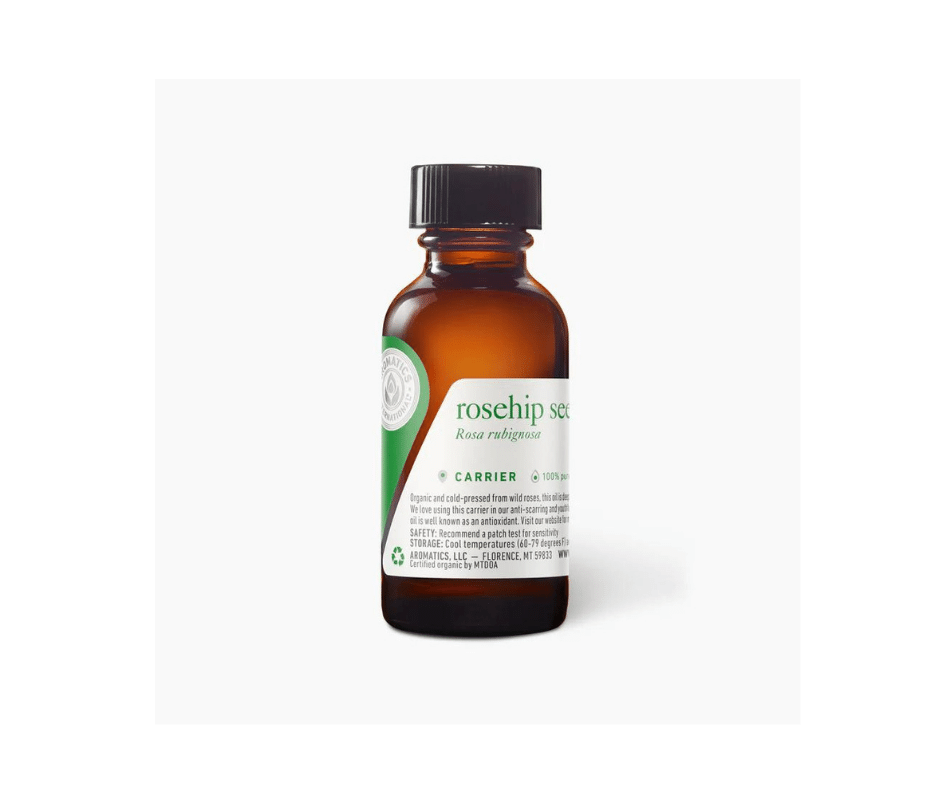
Rosehip seed oil is a superstar ingredient. Often used in skincare formulations for it's ability to naturally exfoliate the skin. It promotes and encourages cellular turnover and is anti inflammatory making is great for those with acne skin. There are many studies that show the effectiveness of this ingredient for acne skin and repairing and fading acne scarring.
Pros: Rosehip oil is rich in antioxidants and vitamins A, C, and E. These nutrients can help to repair damaged skin and reduce inflammation. Rich in linoleic acid, it has also been shown to reduce acne scars in clinical studies making it a great option for those with PIH, post-inflammatory hyperpigmentation. Rosehip seed oil can also balance and regulate skin's natural sebum production making it great for acne-prone skin. A star facial oil with clinical studies has proven this essential fatty acid oil can be very effective for acne.
Cons: Rosehip seed oil when taken in supplement form may cause nausea, insomnia, heartburn, headache, and potentially kidney stones. Talk with your medical professional before starting new supplements.
Visit Aromatics International for more product options.
Marula Oil
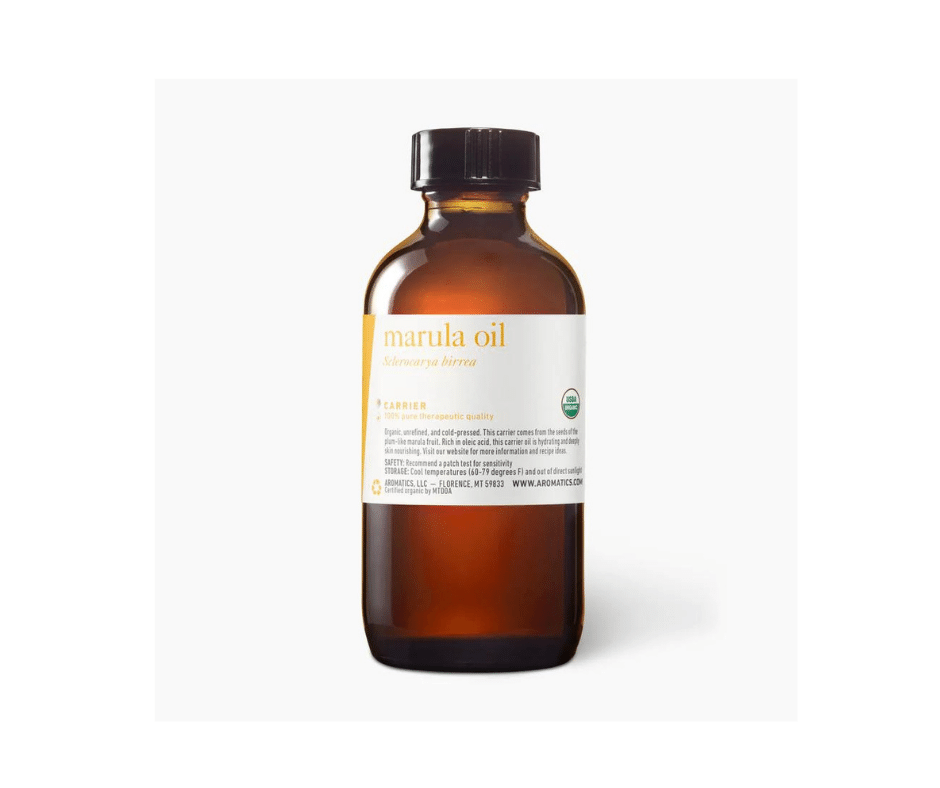
Marula oil makes a great option for those who have combination prone skin. It's also good for those with hormonal acne or mature skin types as it has oleic and linoleic acid to promote healthy, moisturized skin.
Pros: Marula oil is non-comedogenic and rich in oleic acid and linoleic acid. This makes it a good choice for those with acne-prone skin as it can help to reduce inflammation. It can be especially helpful for those with combination skin. Better suited for mature skin types with oily-prone skin.
Cons: It may be too moisturizing for heavier oily skin and severe acne-prone skin types.
Visit Aromatics International for more product options.
Argan Oil
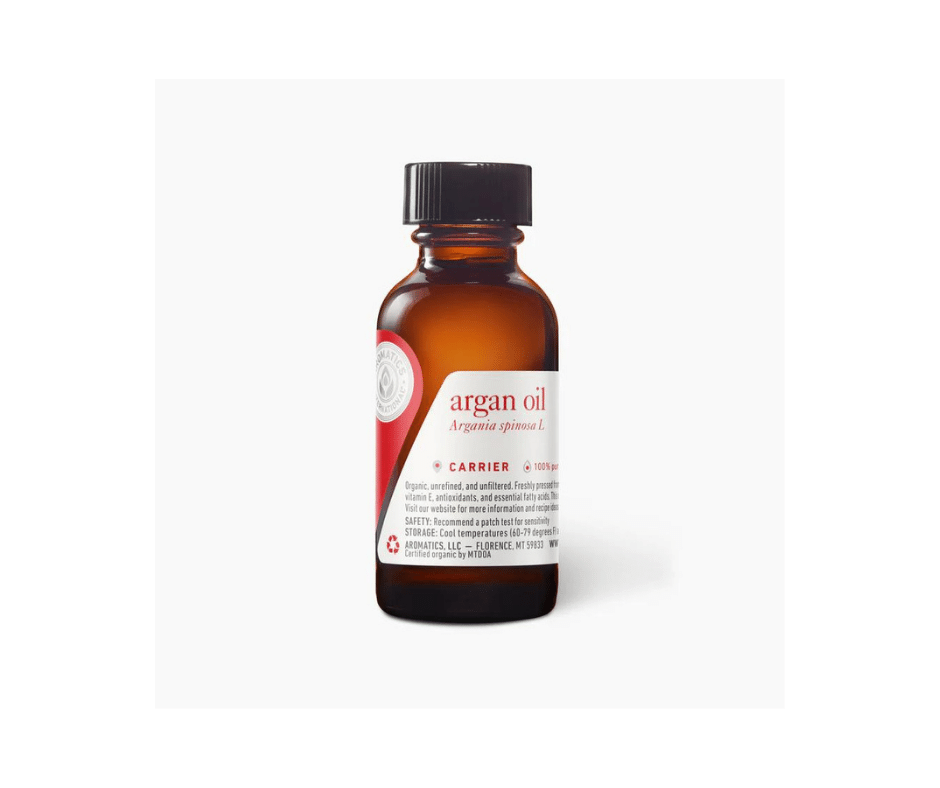
Argan oil gets a lot of positive press. This is with good reason. Argan oil is a superstar carrier oil. It contains the basics needed for healthy skin. Vitamin E, rich in antioxidants and vitamin A encourages cell renewal make this one a good choice for all skin types. Argan oil is not greasy and absorbs really easily into the skin making it great for oil skin types as well.
Pros: Argan oil is rich in vitamins E and A as well as essential fatty acids. These nutrients can help to heal damaged skin and reduce inflammation. Argan oil has also been shown to reduce acne scarring in clinical studies. This nongreasy oil does not clog pores. This brand is produced in Morocco and supports women workers in the region. Argan oil can also balance and regulate sebum production making it ideal for acne-prone skin.
Cons: Argan oil is considered non-comedogenic but some people with very sensitive skin may find that it clogs their pores. If you have sensitive skin, it’s best to test the oil on a small area before using it all over your face.
Visit Aromatics International for more product options.
Pomegranate Seed Oil
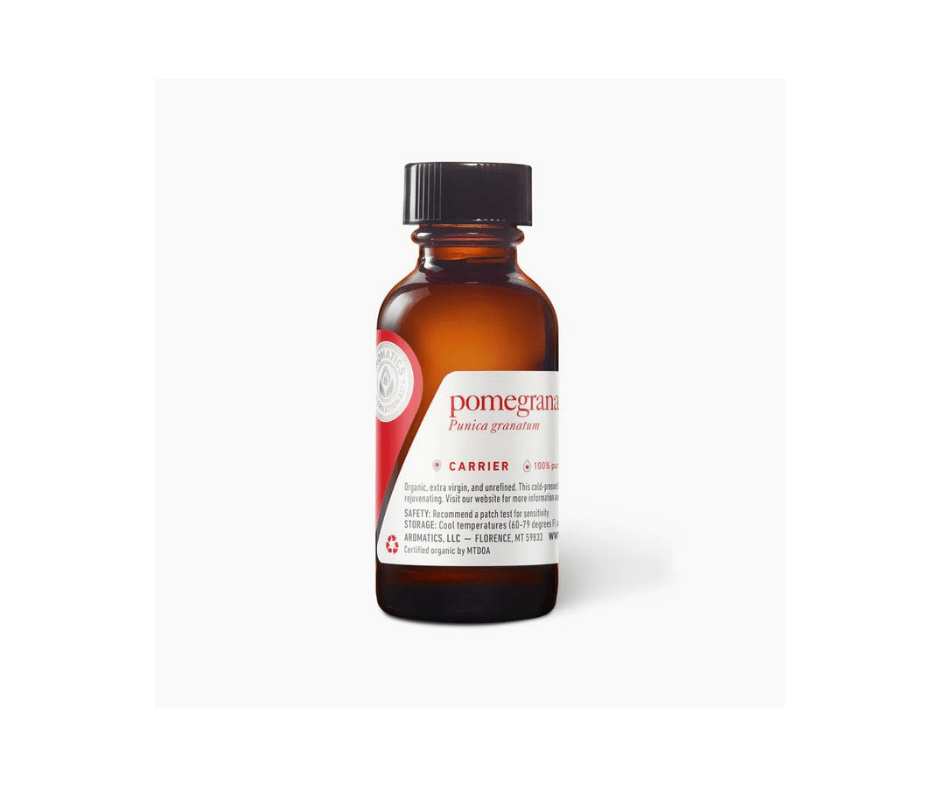
Pomegranate oil has a rich supply of antioxidants. In fact, it is more potent than oranges in antioxidant activity. Punicic acid give this product the ability for cell renewal which is very important for acne skin. This helps the skin to avoid the sluggish, dull complexion often associated with acne skin types.
Pros: Pomegranate seed oil is rich in antioxidants and vitamins C and E. Also rich in punicic acid and can help encourage increased cell turnover. These nutrients can help to repair damaged skin and reduce inflammation. The pomegranate seed oil has also been shown to reduce acne scarring in clinical studies.
Cons: Pomegranate seed oil may be a bit too drying for some people with acne-prone skin. If you have very dry skin, it’s best to use this oil in moderation or mix it with a more hydrating oil.
Visit Aromatics International for more product options.
Sea Buckthorn Oil
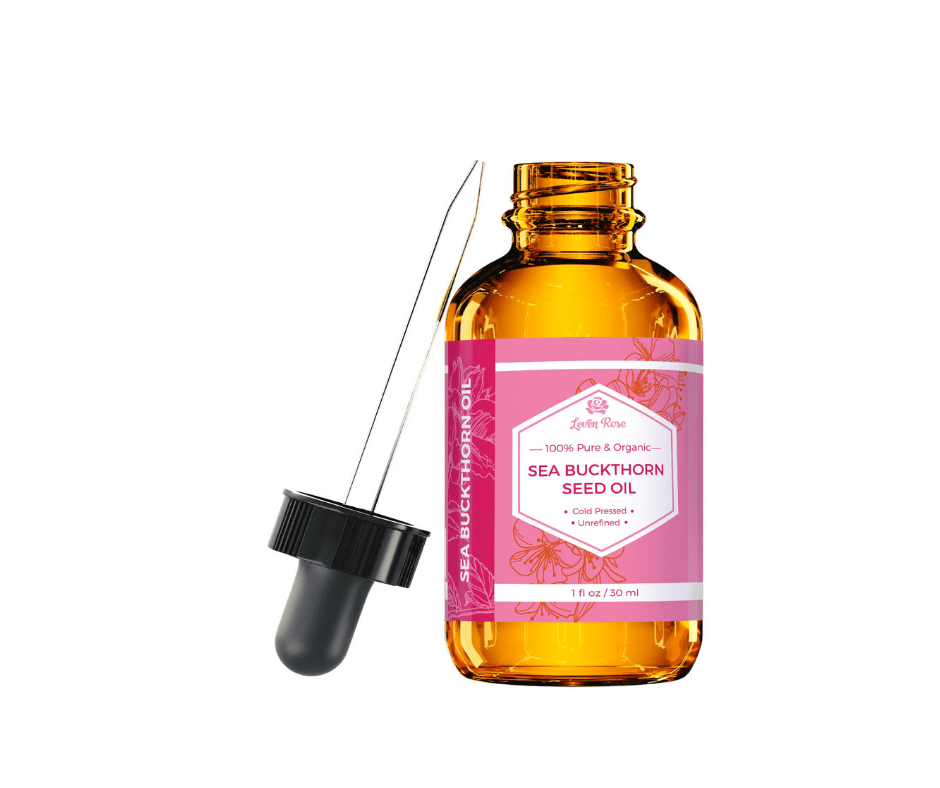
Sea Buckthorn oil is used in many skincare products because it contains so many lovely ingredients for all skin types. While often used in aging skincare, this ingredient also works well in the regeneration and natural exfoliation encouraging new skin cells and helping to brighten the skin. Because it has been used in clinical studies to help with acne scars this carrier oil is great for those who also have those scars and want to improve the look of acne scarring.
Pros: Sea buckthorn oil is rich in vitamins A, vitamin C, and vitamin E as well as fatty acids. These nutrients can help to heal damaged skin and reduce inflammation while also increasing cellular turnover and fibroblast activity. The oil has also been shown to reduce acne scarring in clinical studies.
Cons: Some people with acne-prone skin may find that sea buckthorn may be a bit too drying for some people with acne-prone skin. If you have very dry skin, it’s best to use this oil in moderation or mix it with a more hydrating oil.
Visit the Leven Rose Store for more product selections.
Laurel Berry
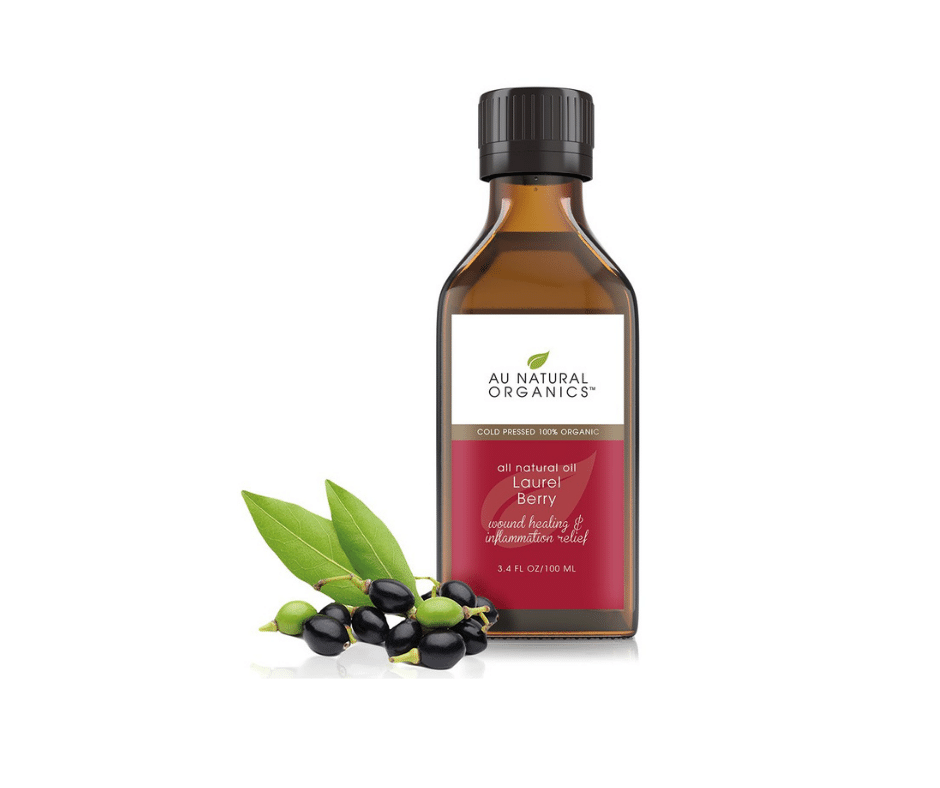
Laurel Berry oil is a pretty versatile oil. Rich in lauric acid and oleic and lineolic acids which make this one ideal for pretty much anyone with skin conditions. The natural exfoliating properties of this oil encourage cellular renewal and repair and the anti bacterial properties make it a great option for those with bacterial acne or those who simply want help flushing out toxins and pollution from the skin.
Pros: Laurel Berry oil is also rich in oleic acid as well as lauric acid. Lauric acid has antibacterial properties is also rich in oleic acid as well as lauric acid. Lauric acid has antibacterial properties which can help to kill the bacteria that cause acne. This deep-cleaning oil can help flush out toxins, is anti-allergenic, and has antiseptic properties as well as astringent properties beneficial for acne. It also provides a wound-healing response that can benefit acne skin types.
Cons: Laurel berry oil is not a traditional carrier oil. It is an essential oil. Some essential oils can make certain acne types worse.
Visit Au Natural Organics store for more product selections.
Hemp Seed Oil
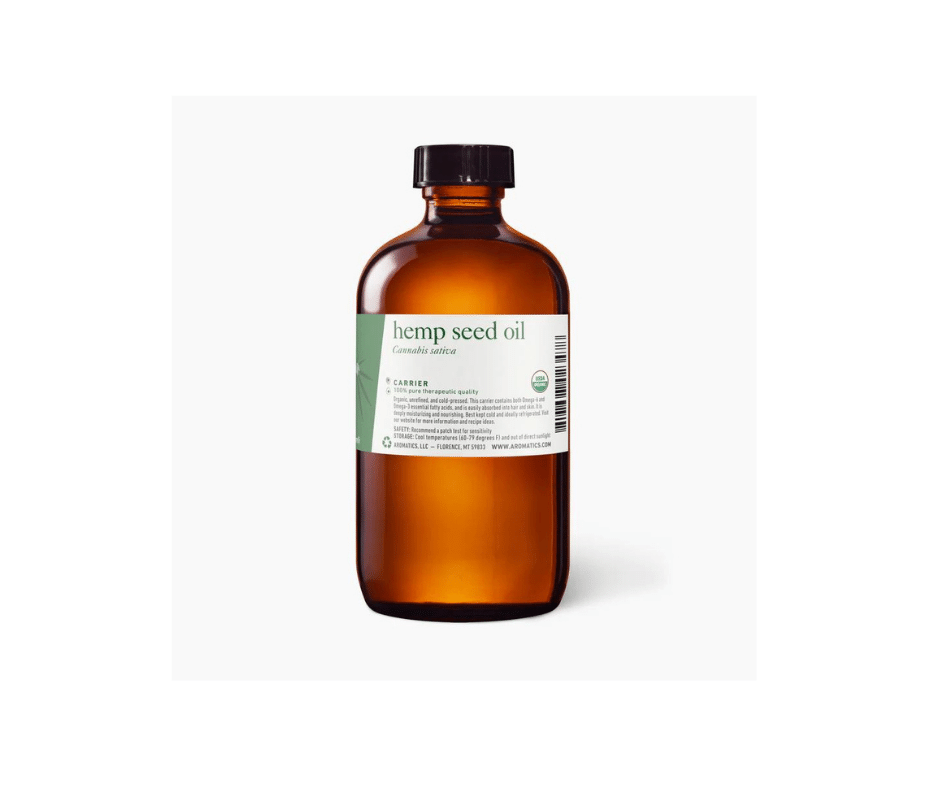
This one is sourced from Canada who by the way has better regulations for skincare products than in the US. I can tell you that speaking as a skincare professional. It has a slightly nutty smell and is fast absorbing. It doesn't just sit on top of your skin like other products on the market. I love the multi-use ability of this oil.
Pros: Hemp seed oil is rich in linoleic acid and oleic acids and omega 6 in a ratio of 3:1. Known for balancing and soothing skin, this oil shines as an acne-soothing oil without leaving a greasy feeling. There is a reason hemp is used in muscle and joint pain relief used for its anti-inflammatory properties and for purifying and tonifying the skin. Hemp seed helps regulate sebum production and does not clog pores. A solid choice for acne skin types. This carrier oil contains no CBD. Sensitive to light this oil should be stored in a cool, dry place. It keeps the skin moisturized so the skin does not dry out and produces more oil causing more acne. If you have acne-prone skin, you might want to try hemp seed oil. Hemp seed oil is non-comedogenic, which means it won’t clog your pores.
Cons: Because it is sensitive to light it does make it a little more difficult to store. Be sure to experiment to find the oil that works best for you.
Visit Aromatics International for more product options.
Best Carrier Oils for Skin
Now that you know many carrier oils are helpful for acne-prone skin, make sure to incorporate them into your skincare routine! It may take some time when changing your skincare for acne-prone skin. We recommend giving it a couple of weeks for the skin to purge. These oils can help to clear up your skin and give you the radiant and healthy complexion you’ve been wanting.
Final Verdict
There are plenty of carrier oils that are good for acne-prone skin and plenty of oils that are not despite what you see or hear. When you want to know what works you look for information from trusted sources like skincare professionals. And we have that right here. If you’re looking for an all-natural way to improve your skin, try one of the carrier oils on this list!
Follow us on GottaGuide.com, Twitter, Facebook, and Pinterest, Quora for our latest articles on all things skincare and beauty. When you follow us on Quora we have an open platform to ask your beauty and skincare questions.
PAID ENDORSEMENT DISCLOSURE: As a staff of licensed aestheticians we review products based on their merit based on our professional expertise. This is not a replacement for your own skin therapist's advice for your skin or any medical claim or endorsement. We encourage you to seek medical care when appropriate. To support our website activities, we may receive monetary compensation or another form of recompense for our endorsement, recommendation, testimonials, and/or links to any products or services from this website as part of the Amazon Associate program or another Affiliate program. We Thank you in advance for your patronage.

